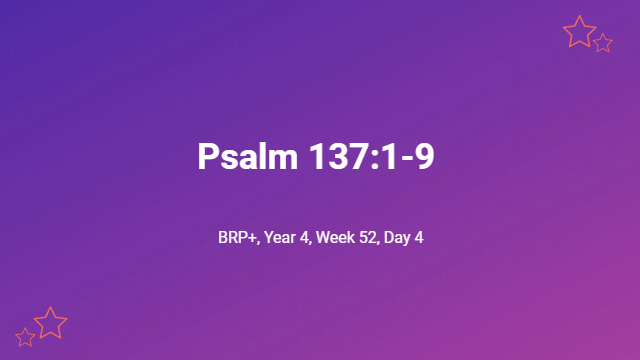Psalm 137:1-9
Q.1. What experience of God’s people inspired this song? Why was it hard to sing this Psalm? How did God use this trial? – (Ps.137:1-6)
After years of warnings from God through His prophets, Judah was taken captive and exiled to Babylon (2 Chr.36:15-21). One of the distinctive traditions of God’s people was their songs of praise to God. There are one hundred and fifty Psalms alone. David had commissioned the families of the Levites to write songs and to form choirs and orchestras which were associated with the worship at the temple in Jerusalem. However, for those who hated God, to sing these songs as a performance was odious, because the songs reminded them of what they had once enjoyed (Ps.137:3-4). It is often not until we lose something or someone precious, that we realize their true value. This was the response of God’s people – 5 If I forget you, O Jerusalem, may my right hand forget her skill. 6 May my tongue cling to the roof of my mouth if I do not remember you if I do not exalt Jerusalem above my chief joy (Ps.137:5-6).
Q.2. What was the emotion behind the prayer of God’s people? Why is it wise to leave vengeance to God? – (Ps.137:7-9)
The captive exiles of Judah recalled their treatment at the hands of their enemies. They expressed their longing to be avenged. Not only were they unable to punish those who had destroyed them and their cities, but they would have been unwise to take their own vengeance. This is because the Scriptures say – Never take your own revenge, beloved, but leave room for the wrath of God, for it is written, “Vengeance is Mine, I will repay,” says the Lord (Rom.12:19).

